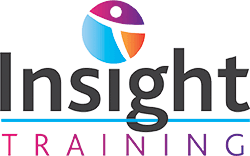What is early childhood education?
In Australia, early childhood education is a term that describes formal and informal learning experiences for children under six years of age. It incorporates early childhood education contexts, like preschools and kindergartens, and home-based settings, like child care and playgroups.
Early childhood education aims to develop the skills, knowledge, behaviours and attitudes that young children need to be successful learners and contributors to society. The role of an early childhood educator is to design and implement a curriculum while ensuring that young children have access to safe environments where they can learn through play with other children their own age. The goals of early childhood educators include:
- Supporting children’s learning and development
- Creating a caring community where all children are valued
- Promoting social justice, equity and the inclusion of all children regardless of race, gender or disability status
- Developing positive relationships with families
- Helping children develop positive self-esteem so they can participate fully in society
What is a Diploma in Early Childhood Care and Education?
A Diploma of Early Childhood Education and Care is a nationally recognised vocational qualification. It prepares you to work with children in various childcare settings, including schools, childcare centres, families and communities across Australia.
The CHC50121 Diploma of Early Childhood Education and Care builds upon and extends the skills taught in the CHC30113 Certificate III, which means that as a graduate of the Diploma, you’re ready to work at a high level in the sector. You can go straight into an Educational or Team Leader role in a childcare or family daycare centre, where you supervise staff or volunteers and develop and implement the curriculum. You can also work as an assistant in a preschool. You’re also skilled in first aid and safety and prepared to work within the requirements of the National Quality Standard and the Education and Care Services National Regulations.
You have the option to take this practical, industry-focused course at either a TAFE institution or a Registered Training Organisation (RTO). It includes a total of 15 units of competency, including 12 core units and three elective units, which you typically complete over a year of full-time study (or two part-time). During your study, you also complete 300 hours of work placement to gain hands-on experience and confidence in an early childhood education setting.
Core units include:
- BSBTWK502 – Manage team effectiveness
- CHCECE041 – Maintain a safe and healthy environment for children
- CHCECE042 – Foster holistic early childhood learning, development and wellbeing
- CHCECE043 – Nurture creativity in children
- CHCECE044 – Facilitate compliance in a children’s education and care service
- CHCECE045 – Foster positive and respectful interactions and behaviour in children
- CHCECE046 – Implement strategies for the inclusion of all children
- CHCECE047 – Analyse information to inform children’s learning
- CHCECE048 – Plan and implement children’s education and care curriculum
- CHCECE049 – Embed environmental responsibility in service operations
- CHCECE050 – Work in partnership with children’s families
- CHCPRP003 – Reflect on and improve own professional practice
Elective units can include:
- CHCECE051- Promote equity in access to the service
- CHCSAC010- Foster holistic learning, development and wellbeing for school-age children
- BSBSTR501- Establish innovative work environments
- BSBHRM413- Support the learning and development of teams and individuals
- CHCINM002- Meet community information needs
- CHCECE057- Use collaborative practices to uphold child protection principles
- CHCDIV003- Manage and promote diversity Manage and promote diversity
- BSBOPS502- Manage business operational plans Manage business operational plans
- CHCECE052- Plan service and supports for children and families
- BSBPEF502- Develop and use emotional intelligence
Different providers offer different electives, so it’s a good idea to check when comparing courses.
Early childhood education and care is a booming sector, with skills shortages and high demand for staff. Because of this, the government is heavily funding qualifications in this area through JobTrainer or state schemes. This means the government could pay for part or all of the tuition fees for eligible students. To find out if you’re eligible for funding, enquire about a course, and the education provider will check for you.
Course fees vary between providers and are affected by several things — such as Recognition of Prior Learning (RPL) or credit transfers, eligibility for government funding, and concessions. You may also be eligible for a VET Student Loan to help you pay for the course over time. Enquire about a specific course to get more information about course fees and specific course details.
New entry requirements for this course came into effect in 2021. These include:
- CHC30121 Certificate III in Early Childhood Education and Care or
- CHC30113 Certificate III in Early Childhood Education and Care
Alternate entry pathways exist for people who identify as Aboriginal or Torres Strait Islander.
In addition, most providers will require you to get:
- Working With Children Check
- Police Record Check
You may also need to take a literacy and numeracy assessment and a pre-training interview.
Can you work with a Diploma of Early Childhood Education in child protection?
No, a Diploma of Early Childhood Education does not qualify you to work in child protection. To work as a child protection practitioner, you must hold one of the following recognised qualifications:
Career outcomes
As a Diploma of Early Childhood Education and Care graduate, you could be a:
- Childhood Education Manager
- Nominated Supervisor
- Centre Manager (children’s services)
- Children’s Service Director/Manager
- Children’s Services Coordinator
- Director (Children’s Services)
- Group/Team Coordinator/Leader (Children’s Services)
- Program Leader (Children’s Services)
- Educational Support Leader or Educational Support Officer




